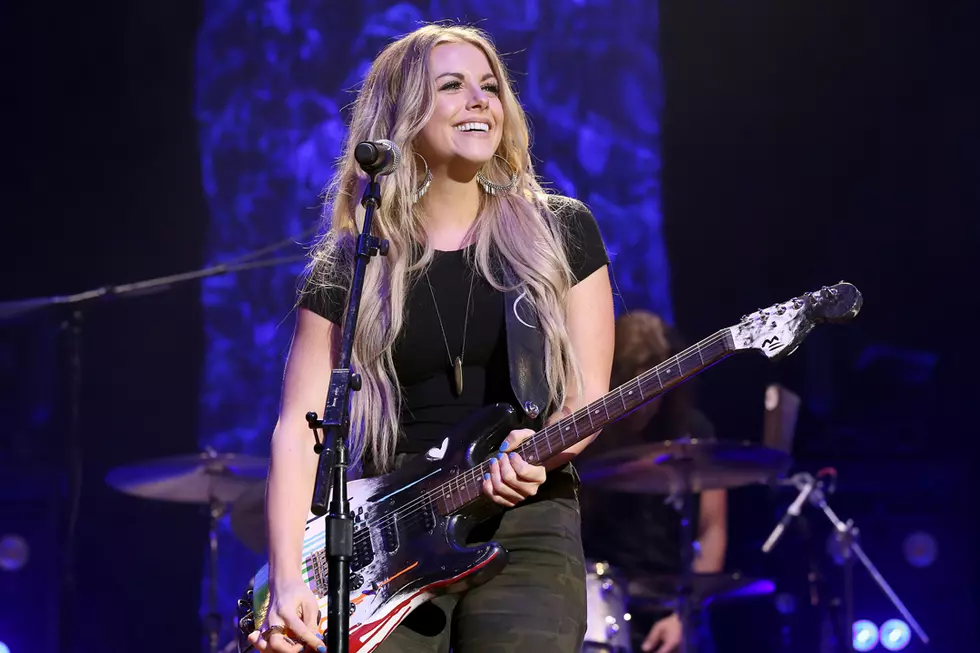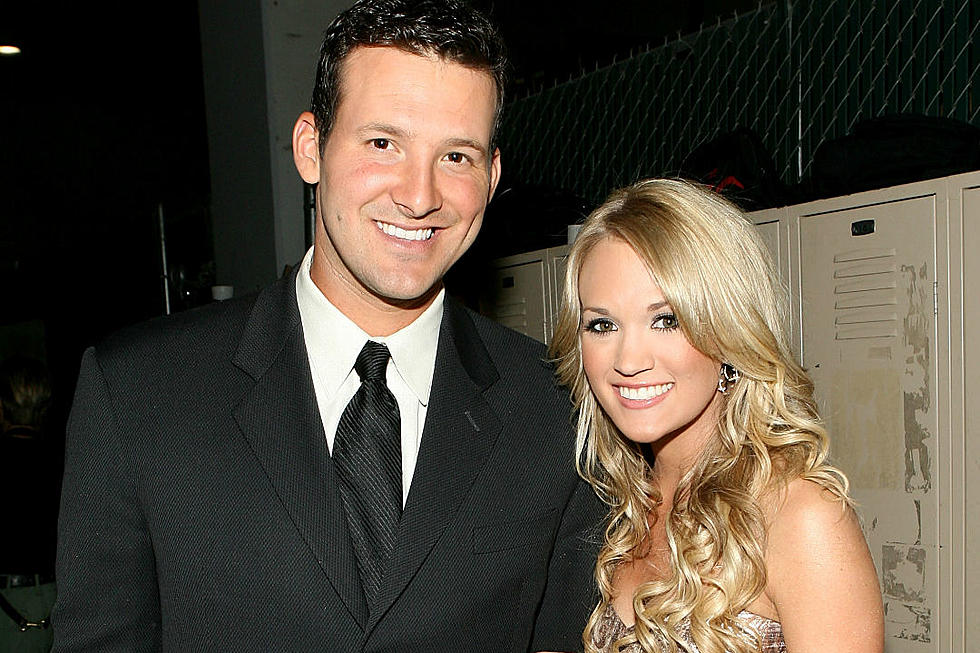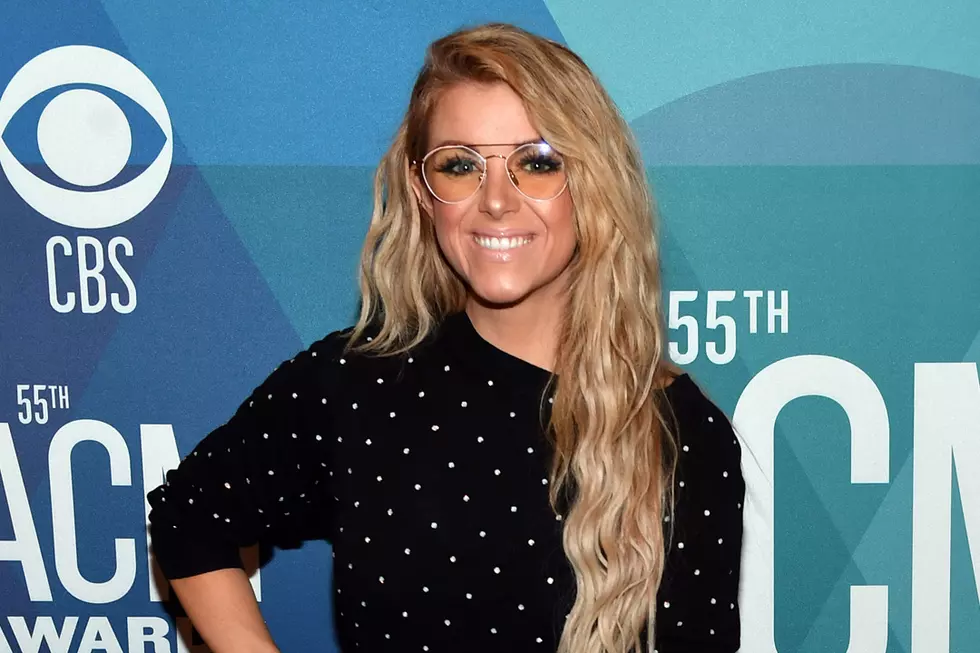
Lindsay Ell Talks ‘Heart Theory,’ An Album Nobody Expected
Lindsay Ell grew up wanting to be good. She practiced and hustled obeyed and rarely spoke up during the early years of her Nashville career, a time when women in country music were sidelined, seemingly for just being women.
The Canadian-born singer and guitarist worked hard and often went above and beyond, with marathon busking sessions along Nashville's Lower Broadway or endless tour stops and promotional radio visits. If you follow the 31-year-old on Instagram, you know the joke. This is the girl who helped make the multi-shaded, brown, berber carpet at Nashville's BNA airport famous because every time she takes a trip, she films herself walking along it to her gate. Prior to the coronavirus quarantine, she took a lot of trips.
The idea of being good has shifted in recent years, however, or even in recent months. It's no longer an internal quest, but one that focuses on what she leaves behind. Heart Theory, her just-released second studio album of originals on Stoney Creek Records, is a concept album that takes her through the seven stages of grief, presumably grief in ending a relationship with radio deejay Bobby Bones.
Perhaps that's what Ell was even aiming to make when she started three years ago — she promised the split would provide plenty of material — but everything changed. Heart Theory is still, by-and-large, a breakup album with one punch-you-in-the-face story about sexual assault called "Make You" that's snuck in before it closes.
But overall it's kind of ... fun?
“I want people to dance in their kitchen and have groove, because groove and soul is so much of who I am and what inspires me,” Ell says of the "sangers" (sad bangers) on the album.
"Hits Me" (shock) is a Tyler Hubbard co-written groove that leads into the funky intro of "How Good," one of two songs (along with "Make You") Ell wrote with Brandy Clark. The two radio singles ("I Don't Love You" and "Want Me Back," a Kane Brown co-write) slow things down, but her attitude in "Get Over You" builds nicely into "Wrong Girl" and the two signature "sangers" on Heart Theory, "Body Language of a Breakup" and "Good on You." Producer Dann Huff deserves all the credit he gets for turning what surely could have been a dour, coffee shop album into something with serious commercial appeal. But when you push past the hot guitar licks and Ell's effortless solos, you're still left with stark, vulnerable songwriting. So we had to ask ...
Was this an enjoyable album to make?
Absolutely. It was difficult to write at points, but there is nothing like the therapy of writing a good song about exactly how you feel. I truly loved writing every single song on this record and recording them and finding ways to bring them to life. I love therapy, and I’ve been going to therapy for years, but I’ve probably saved thousands of dollars from the extra therapy from making this album.
How do you talk about this album without people thinking you’re throwing shade at one of the most popular country radio DJs in America?
Any of my past relationships in my life have truly helped form me into the human I am today, and I’m grateful to every single one of them for that reason. I feel like anytime we’re going through a specific breakup it causes us to reflect on all relationships in your life. Why were you attracted to the people that you are, and ultimately it puts a mirror on yourself, how you show up in every single relationship in your life. So a lot of these songs were helping me process not just my one public breakup, but every single breakup in my life. And help me learn things about myself — where I went right, where I went wrong. And also helped me learn things about my childhood like I talk about in the song "Make You," what truly makes me into the person I show up as today.
“If I would have had someone to hold 13-year-old Lindsay’s hand and 21-year-old Lindsay’s hand and tell them that it’s going to be OK, they’re not alone, it’s going to be OK. I think I would have healed so much faster.”
As you look back through your relationships, do you find yourself falling for the same traps or types?
Yeah, I think it’s something very common for us as human beings to sort of repeat the same things, and when you look at past relationships, you are attracted to similar people. I feel like you can learn a lot when you study your past few relationships and why you’re attracted to the things you are.
I feel like in the past two years I’ve really taken that deep dive to learn about myself and focus on personal development, and I think when you start to open those chapters and really dig into them to find out what goes into that, then you break through some of those molds because you’re able to become more aware of them.
To what extent was it challenging to take all this emotion on paper and turn it into songs that fans can find themselves in?
I love writing from my own experience because I feel like I can write a lot more honest and vulnerable doing that. In doing so, I also want to write a song that someone can listen to and be like, "I know what that feels like." The funny thing about it to me is the more detailed you get in songwriting, the more relatable it is. Even when I’m listening to John Mayer. In the song “Comfortable” he uses the reference to gray sweatpants. Okay, so that’s a very detailed lyric, so even if I don’t own gray sweatpants it paints a picture that’s clear for me that I can now put myself in that picture.
Why was “Make You” right for this album?
Three years ago I went to a place called Youth for Tomorrow. They’re an organization in the States that deals with kids age 12 to 18 who have been victims of sex trafficking and rape. I went there to help them launch their music program three years ago and ended up sitting down with a group of 12 girls around a conference table and sat down and told them my story and heard their story. And Billy, they were horrific things. A 12-year-old girl sitting beside me was like, ‘Lindsay, my parents sold me to a sex trafficking company when I was little.’
As I told more of my story they wanted to share more of their story, and it just hit me so much that if I didn’t talk about my story right now I was holding back an opportunity to help other little girls like that or other little boys like that.
Where were you in the healing process when you shared that story with that group of people?
I thought I was a lot further along in the healing process when I shared that story. Over the course of the last three years, I have definitely done a lot of work and dug into those wounds in ways that I didn’t even know I needed, which is kind of the crazy thing about being a survivor. Nobody can really tell you how to process it and how it’s going to go. Everybody is sort of on their own schedule and their own timeline.
I feel like even six months ago I feel like I had a huge breakthrough. I went to a place called Onsite (Onsite Workshops), a camp just outside of Nashville. I guess a therapy camp. I went there for a few days in February and it was life-changing.
In the liner notes, you say you were forced to open up about secrets from your childhood, and the word "forced" really struck me. Why were you forced?
It was a force within myself because again, after talking to those little girls — for so long I didn’t talk about it because I didn’t want it to be just a statement that was out there. I felt forced because I felt if I don’t talk about this right now, then I am holding back the opportunity to really make a difference. I love being a musician and a songwriter, and it is like everything in my pride and joy to do that as my job every day, but I do this because I want to be good and I want to leave this world a little bit better than I entered it, somehow.
As a result of Ell's ongoing therapy and work with victims of sexual violence and domestic abuse, she started the Make You Movement, a non-profit that supports the Rape, Abuse & Incest National Network (RAINN).
“If I would have had someone to hold 13-year-old Lindsay’s hand and 21-year-old Lindsay’s hand and tell them that it’s going to be OK, they’re not alone, it’s going to be OK. I think I would have healed so much faster," she says.
Here Are 17 Songs From Women In Country You Need In Your Life:
More From KEAN 105
![Chayce Beckham and Lindsay Ell Show Are Magnetic in Sexy Duet, ‘Can’t Do Without Me’ [Listen]](http://townsquare.media/site/204/files/2022/01/attachment-cant-do-without-me.jpg?w=980&q=75)


![Luke Bryan + More Bring Pepsi Gulf Coast Jam Back to Florida [Pictures]](http://townsquare.media/site/204/files/2021/06/2021-pepsi-gulf-coast-jam.jpg?w=980&q=75)
![Cassadee Pope Calls on Karen Fairchild, Lindsay Ell to Ponder ‘What the Stars See’ [Listen]](http://townsquare.media/site/204/files/2021/05/lindsay-ell-cassadee-pope-karen-fairchild.jpg?w=980&q=75)



![Willie Nelson Joins ACM New Artist Nominees for New Recording of ‘On the Road Again’ [Listen]](http://townsquare.media/site/204/files/2020/08/willie-nelson-on-the-road-again-acm-lifting-lives-edition-new-artist-nominees.jpg?w=980&q=75)

